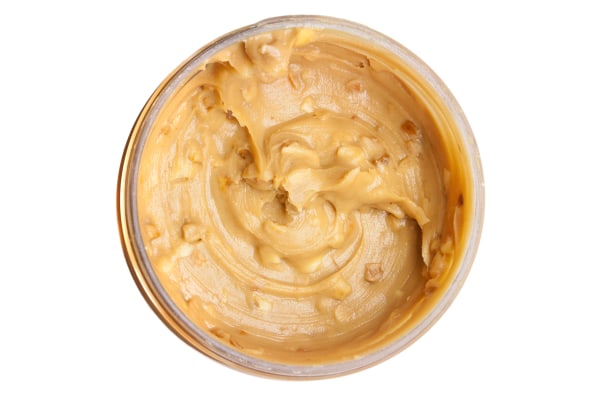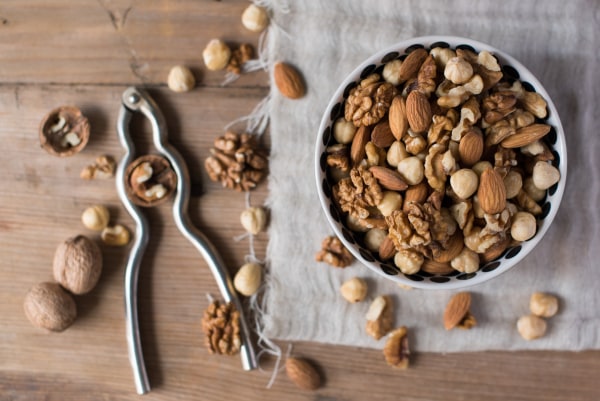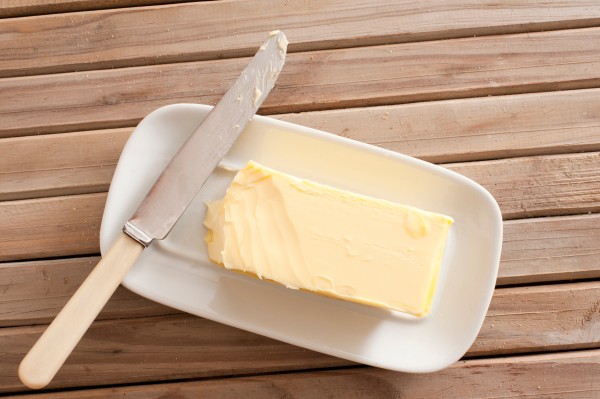
To store in the fridge or not? That's the question most of us ask about several common kitchen items, or leftovers. Don't feel foolish if you frequently wind up stumped — so do the rest of us!
Here's a helpful guide about where your most frequently questioned foods should be stored:
1. Unopened salami or pepperoni: Room temperature
Whether part of a gift basket, or purchased for a cocktail party, all unopened salamis and related versions can be stored at room temperature. Once you've opened them, store them in the fridge, as they're susceptible to bacteria and mold from the cut end, even if most of it remains wrapped.
2. Leftover can of frosting: Refrigerator
An open can of frosting needs to go in your fridge. Unopened, it's fine in your pantry, but once you've used it, it's prone to spoilage and bacterial contamination.
3. Peanut butter (processed commercial brands): Room temperature
Traditional peanut butters like Jif or Skippy are processed for a long shelf life, even after opening. And any additives used to stabilize the products are FDA approved, and have used safely for decades.
4. Peanut butter (unprocessed brands): Refrigerator
 |
| Image:Jamesmcq24 / Getty Images |
To soften, remove from the fridge 30 - 60 minutes prior to using.
5. Coconut oil: Refrigerator
All oil can become rancid when stored at room temperature for too long. This is particularly true for oils used less often, including coconut, sesame and walnut oils. To ensure freshness, store in the fridge. Coconut oil is already a solid fat at room temperature. Sesame and walnut oils become solid in the refrigerator, but return to a liquid at room temperature without a change in taste or texture.
6. Coffee beans: Room temperature
If you're looking for optimal taste and aroma from your morning joe, keep the beans at room temperature. Coffee beans can pick up moisture from the fridge, and compromise flavor (but it doesn't alter the caffeine content).
For storage longer than a few weeks, wrap tightly in plastic wrap and freezer bags, and store in the freezer for up to six months.
7. Soy sauce: Room temperature
Soy sauce is a fermented product of soybeans, and once opened can safely remain at room temperature.
8. Hot sauce: Room temperature
Hot sauces are generally a mixture of vinegar, hot peppers and seasonings. Because vinegar is a mild acid, these sauces can be stored at room temp without spoilage. If you choose to store it in the fridge, warm to room temperature for optimal flavor before using.
9. Leftover pie: Refrigerator
Because the crusts and sometimes the fillings contain butter, cream, and eggs, store leftover pie in the fridge to avoid spoilage.
10. Mixed nuts: Refrigerator
 |
| Walnuts, almonds and hazelnuts [Emilija Manevska / Getty Images] |
11. Balsamic vinegar: Room temperature
All vinegars — plain and specialty types like balsamic or tarragon — are stable at room temperature. Vinegar is a mild acid which deters bacterial growth.
12. Butter: Refrigerator
 |
| Image: Stephen Gibson / EyeEm / Getty Images/EyeEm |
Top Image Credit: tookapic-1386459/Pixabay
SOURCE: NBC News

No comments:
Post a Comment